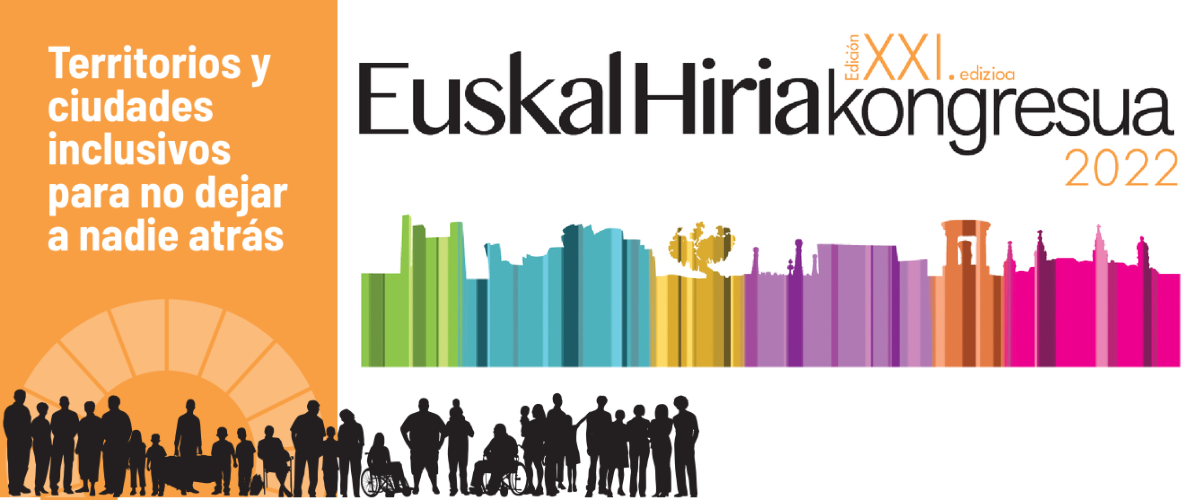The Basque Country evaluates how the New Urban Agenda is being implemented

The XXI Euskal Hiria Congress, organized in Bilbao by the Basque Government with the support of UN-Habitat, focused on how to develop cohesive territories, within the framework of effective policies for social inclusion and equity. The event featured international, national, regional and local specialists of the first order, providing valuable answers to the challenge posed by the design of cities and territorial cohesion, if one wants to respond to social exclusion.
The event was opened by Carmen Sánchez Miranda, head of the UN Habitat Spain Office, who expressed the urgency of finding solutions to all the social challenges we face, from the fight against Climate Change to the reduction of poverty. Referring to the title of the congress "Inclusive territories and cities to leave no one behind" she affirmed the importance of leaving "no one, no place" behind. Thus, she explained that "space is a very important vector in relation to equality." She advocated for the New Social Contract defended by the Secretary General of the United Nations, Antonio Guterres, to develop the New Urban Agenda.
At the same opening of the Congress, the regional Minister of Territorial Planning of the Basque Country, Iñaki Arriola, explained eight different urban projects that seek to combat poverty, but also inequality. "We have come to the conclusion, he explained, that housing and transportation are the keys, as they never were, to reduce inequalities in the territory." During the Congress, special attention was paid to the rehabilitation and urban regeneration processes of neighborhoods promoted by the Basque Government in 21 municipalities, which began with the Opengela project, financed by the European Commission, with two pilot experiences in Otxarkoaga (Bilbao) and Txonta (Eibar). Through this formula, neighborhood offices are created that, as a one-stop shop, accompany neighborhoods in rehabilitation processes.
During the two days of Euskal Hiria, the need to interact between rural and urban environments to achieve sustainable development was highlighted. Thus, different scales of intervention were indicated: between the urban and the rural, between territories, but also between cities and between neighborhoods of the same locality. They have been pointed out as examples of opportunities: the improvement of the energy efficiency of buildings, due to its important social impact and the improvements that they represent in people's health, but also the establishment of essential services that can be accessed by foot, green spaces and spaces for coexistence. Always thinking of neighborhoods with services, as opposed to the fragmented and specialized city-city.
It is worth highlighting the intervention of Miguel de los Toyos, Basque Deputy Minister for Territorial Planning and Urban Agenda, who, in the face of the multifactorial crisis we are facing, stated that urban and territorial planning policies have a key social impact. “The time in which urban planning was a purely technical issue is over,” he said. Today urbanism has a political and social dimension of the highest importance”. The approach was shared by Alfonso Gurpegui, Deputy Minister of Employment and Inclusion, who explained that the fight against poverty no longer faces the challenge of equalizing "between those who are above and those who are below, but those who are inside and those who are outside the social realm.
The congress was attended by Carles Llorens, general secretary of ORU Fogar, who opted to talk about “sustainable territories and territorial balance. It is an oxymoron - he affirmed - to talk about sustainable cities. Cities, by definition, will never be sustainable.” The general secretary of ORU Fogar also rejected the concept of the “right to the city”, so widely used since Habitat III, in as much as it assumes the city as something superior to the rural and, thus, contributes to stigmatizing the rural. For the best urban policy and territorial balance, he said that "it continues to be essential to avoid rural exodus."










































































